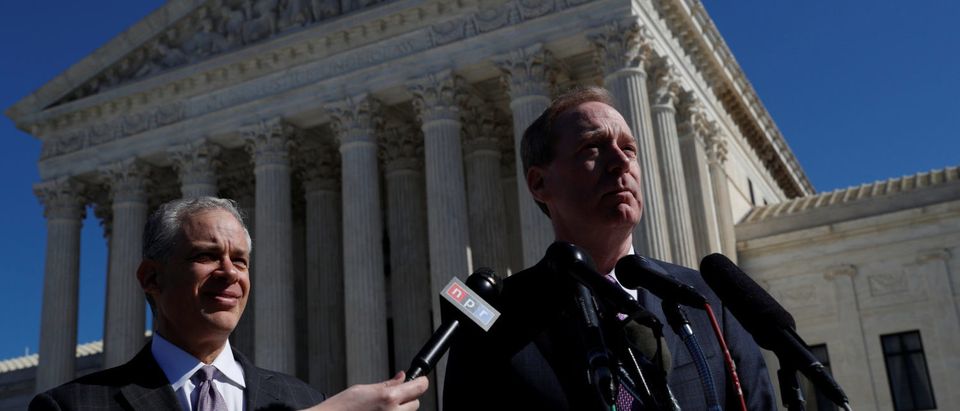The must-pass spending bill currently before Congress includes legislation requiring U.S. tech companies to surrender electronic communications stored in foreign countries to law enforcement when they obtain a warrant, effectively deciding a case currently before the Supreme Court.
The legislation, called the Clarifying Lawful Overseas Use of Data (CLOUD) Act, updates a 1986 law that regulates the disclosure of wired and electronic communications. The law did not anticipate the possibility that such records could be stored and accessed on servers beyond U.S. borders. Service providers and federal investigators have long been at odds as to whether the ’86 law applies to records held abroad by American companies.
The dispute was argued before the high court in February.
The new, bipartisan legislation gives the government access to those communications, subject to certain exceptions. It will likely moot the case pending before the justices.
“The CLOUD Act creates a clear, workable framework to resolve these problems,” GOP Utah Sen. Orrin Hatch, the bill’s sponsor, said in remarks on the Senate floor in February. “The CLOUD Act has broad support in both the tech community and among law enforcement. It bridges the divide that sometimes we see between these two groups.”
The Supreme Court litigation, U.S. v. Microsoft, arose in 2013 when the Bureau of Alcohol, Tobacco, Firearms and Explosives obtained a warrant for emails relating to an ongoing drug trafficking operation. Microsoft, which holds the records at a data center in Ireland, refused to cooperate, arguing the government cannot compel disclosure of information stored in foreign countries, since federal law generally does not operate outside the United States.
Other tech companies have endorsed Microsoft’s position.
European Union regulatory and interest groups warned the emails in dispute are subject to E.U. privacy protections, and may only be obtained through diplomatic channels. The process, established through mutual legal assistance treaties, is lengthy and taxing for police.
The problem is pervasive for law enforcement, who rely on intercepted messages to combat crime and terrorism. A significant portion of these records are stored in foreign facilities beyond their reach, which frustrates an array of investigative efforts.
During arguments in February, several justices suggested Congress should resolve the controversy, since they are better equipped to account for the competing interests.
“Wouldn’t it be wiser just to say ‘let’s leave things as they are?'” Justice Ruth Bader Ginsburg asked. “If Congress wants to regulate in this brave new world, it should do it.”
Justice Sonia Sotomayor referenced the CLOUD Act specifically at another juncture.
Both Microsoft and the Trump administration support the bill, and agreed such legislation was the most desirable outcome.
Disclosure: The writer’s fiancee is employed by a law firm involved in this litigation.
Send tips to kevin@dailycallernewsfoundation.org.
All content created by the Daily Caller News Foundation, an independent and nonpartisan newswire service, is available without charge to any legitimate news publisher that can provide a large audience. All republished articles must include our logo, our reporter’s byline and their DCNF affiliation. For any questions about our guidelines or partnering with us, please contact licensing@dailycallernewsfoundation.org.


